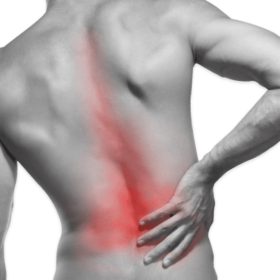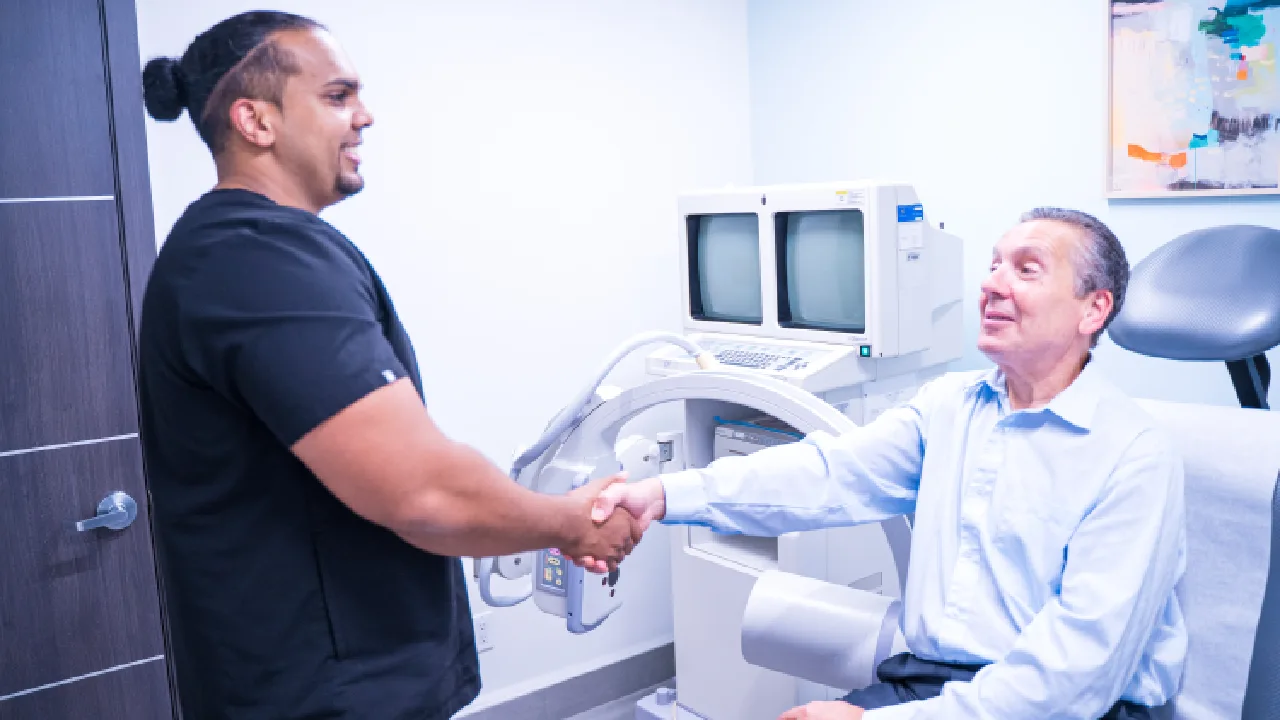
The Drawbacks of Medication Management for Chronic Pain & Tips for Safe Medication Use
1. Risk of Dependency and Addiction
One of the primary concerns with long-term medication use for chronic pain is the risk of dependency and addiction. Many pain medications, particularly opioids, have the potential to be habit-forming, leading to a cycle of reliance that can be difficult to break. Over time, your body may develop a tolerance to the medication, requiring higher doses to achieve the same level of pain relief. This can lead to addiction, with devastating consequences for your health.
2. Side Effects
Another drawback of medication management for chronic pain is the potential for side effects. Many pain medications come with a range of adverse effects, including dizziness, nausea, constipation, and drowsiness. These side effects can not only be uncomfortable but may also impact your ability to function normally on a day-to-day basis. In some cases, the side effects may be severe enough to outweigh the benefits of the medication.
3. Tolerance and Decreased Efficacy
Over time, your body may become tolerant to the effects of certain pain medications, resulting in decreased efficacy. This means that the medication may not provide the same level of pain relief as it did initially, requiring higher doses to achieve the desired effect. Tolerance can lead to a cycle of escalating doses and potentially increased risk of side effects and dependency.
4. Risk of Overdose
The risk of overdose is a serious concern when it comes to medication management for chronic pain, particularly with opioids. Accidental overdose can occur when doses are increased without proper supervision or when medications are mixed with other substances, such as alcohol or sedatives. Overdose can have severe consequences, including respiratory depression, coma, and even death. That’s why you must avoid opioids as a solution for chronic pain.
5. Psychological Effects
Chronic pain can take a significant toll on your mental health, and medication management may exacerbate certain psychological issues. Some pain medications, particularly opioids, can cause mood changes and cognitive impairment and even exacerbate symptoms of depression and anxiety. Additionally, the stress of managing a complex medication regimen can contribute to feelings of frustration, hopelessness, and isolation.
Why You Must AVOID Opioids for Pain Management:
- High risk of dependency and addiction: Opioids, including medications such as oxycodone, hydrocodone, and morphine, carry a significant risk of dependency and addiction. These drugs act on the brain’s reward system, leading to physical and psychological dependence even when used as prescribed. Over time, individuals may find themselves needing higher doses to achieve the same level of pain relief, increasing the likelihood of addiction.
- Increased tolerance: One of the concerning aspects of long-term opioid use is the development of tolerance. As your body becomes accustomed to the effects of opioids, you may find that the initial dosage becomes less effective over time. This phenomenon often leads to the need for higher doses, putting individuals at greater risk of experiencing opioid-related adverse effects, including respiratory depression and overdose.
- Severe side effects: Opioids are associated with a range of potentially severe side effects. These can include drowsiness, constipation, nausea, vomiting, itching, and respiratory depression. In some cases, opioid use can lead to life-threatening complications, particularly when combined with other substances such as alcohol or benzodiazepines. Additionally, opioid-induced respiratory depression can be fatal, especially in cases of overdose.
- Long-term health risks: Prolonged use of opioids can have serious implications for overall health. Chronic opioid use has been linked to hormonal imbalances, including decreased testosterone levels and adrenal insufficiency. Opioids can also disrupt normal gastrointestinal function, leading to constipation, bowel obstruction, and other digestive issues. Furthermore, respiratory complications, such as respiratory depression and sleep-disordered breathing, are significant concerns associated with opioid use.
- Limited effectiveness: While opioids may provide short-term relief for acute pain, they can’t treat the root cause of chronic pain. Studies have shown that opioids may only provide modest pain relief for chronic pain conditions such as low back pain and osteoarthritis. Moreover, the risks associated with long-term opioid therapy often outweigh the potential benefits, particularly considering the availability of alternative pain management strategies.
- Alternative options available: Fortunately, there are numerous non-opioid pain management strategies available that can provide effective relief. These include physical therapy, chiropractic care, and interventional procedures such as nerve blocks and spinal cord stimulation. By exploring these alternatives, individuals can effectively manage their pain while minimizing the risk of addiction and other opioid-related complications.
Are you interested in get more information about your condition or get a treatment?
Fill the form below to start!
Duis aute irure dolor in reprehenderit in voluptate velit esse cillum dolore eu fugiat nulla pariatur. Excepteur sint occaecat cupidatat non proident, sunt in culpa qui officia deserunt mollit anim id est laborum.
Safe, Non-Opioid Pain Management Strategies
At Pain Treatment Specialists, we believe in providing personalized pain management strategies tailored to each individual’s unique needs. Our approach combines the expertise of board-certified interventional pain specialists with the latest advancements in minimally invasive pain treatments. By offering a comprehensive range of non-opioid options, we empower our patients to effectively manage their pain while minimizing the risks of pain medications.
Your holistic pain management strategy may include:
- Physical Therapy: Physical therapy focuses on improving strength, flexibility, and function through targeted exercises and manual techniques. By addressing underlying musculoskeletal imbalances and improving biomechanics, physical therapy can help reduce pain and improve overall quality of life.
- Epidural Steroid Injections: Epidural steroid injections deliver anti-inflammatory medication directly into the epidural space around the spinal cord. This targeted approach can help reduce inflammation and alleviate pain associated with conditions such as herniated discs, spinal stenosis, and sciatica.
- Facet Joint Injections: Facet joint injections target the small joints located along the spine that can become inflamed and painful due to injury or degenerative changes. By injecting a combination of local anesthetic and anti-inflammatory medication into these joints, facet joint injections can provide targeted pain relief and improve mobility.
- Trigger Point Injections: Trigger points are areas of muscle tightness and tenderness that can cause localized pain and referred pain patterns. Trigger point injections deliver medication directly into these points to help relax tight muscles, alleviate pain, and improve range of motion.
- Viscosupplementation: Viscosupplementation involves injecting a gel-like substance called hyaluronic acid into the knee joint to provide lubrication and cushioning. This can help reduce pain and improve mobility in individuals with osteoarthritis of the knee.
- Nerve Blocks: Nerve blocks involve injecting medication, such as local anesthetics or steroids, near or directly into nerves that are responsible for transmitting pain signals. By temporarily disrupting these pain signals, nerve blocks can provide targeted pain relief for conditions such as neuropathy, complex regional pain syndrome (CRPS), and migraine headaches.
- Radiofrequency Ablation: Radiofrequency ablation uses heat generated by radiofrequency energy to disrupt the function of specific nerves responsible for transmitting pain signals. This minimally invasive procedure can provide long-lasting pain relief for conditions such as facet joint pain, sacroiliac joint pain, and chronic neck or back pain.
- Spinal Cord Stimulation: Spinal cord stimulation involves implanting a small device near the spinal cord that delivers electrical pulses to interfere with the transmission of pain signals to the brain. This advanced therapy is often used for individuals with chronic neuropathic pain conditions that have not responded to other treatments.
Contact Pain Treatment Specialists to Manage Chronic Pain WITHOUT Opioids or Pain Medications
Pain Treatment Specialists is your trusted partner in managing chronic pain without the need for opioids or traditional pain medications. Led by board-certified interventional pain doctors, our team is dedicated to providing personalized care that addresses the root cause of your pain. We offer minimally invasive pain treatments that are safe, effective, and tailored to your needs.
With a commitment to avoiding opioids and surgeries whenever possible, you can trust us to prioritize your health and well-being. With multiple offices conveniently located throughout New York and New Jersey, including Midtown Manhattan, the Financial District, Brooklyn, Westchester, Hartsdale, Jericho, Clifton, West Orange, and Woodland Park, accessing expert pain management care has never been easier. Contact Pain Treatment Specialists to schedule your consultation and take the first step toward living a pain-free life.
FEATURED POSTS BY PAIN DOCTORS



















